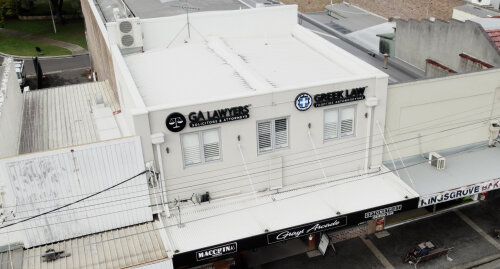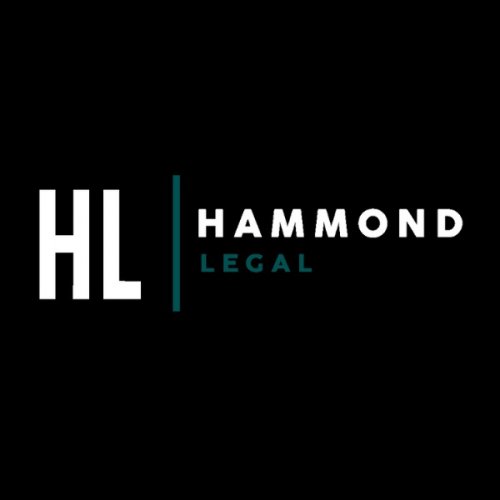Best Property Damage Lawyers in Australia
Share your needs with us, get contacted by law firms.
Free. Takes 2 min.
Or refine your search by selecting a city:
List of the best lawyers in Australia
About Property Damage Law in Australia
Property damage law in Australia encompasses the legal principles and regulations that address the harm to personal or real property. It involves both intentional damage and accidental incidents that may occur due to negligence or unforeseen events. The law aims to ensure that individuals and businesses can seek compensation or remediation when property damage occurs. Understanding your rights and responsibilities under these laws is crucial to effectively address any issues that arise.
Why You May Need a Lawyer
There are several situations where seeking legal advice is beneficial for property damage issues:
1. Claims for Compensation: When your property has been damaged and you seek compensation from those responsible, legal guidance can help you understand your entitlements and assist in putting forward a strong claim.
2. Disputes with Insurers: If an insurance company denies or limits a claim regarding property damage, a lawyer can help you review the insurer's decision and potentially file an appeal or negotiate a better settlement.
3. Neighbor or Landlord Disputes: Property damage disputes with neighbors or landlords, such as issues with trees, fences, or poorly maintained rental properties, often require legal resolution.
4. Understanding Liability: Legal advice can clarify whether you or another party is liable for the damage, which is crucial for personal or business premises.
5. Complex Legal Procedures: Navigating the legal procedures, such as lodging formal complaints or defense strategies, may require professional legal expertise.
Local Laws Overview
Several key local laws are particularly relevant to property damage in Australia:
1. Tort Law: Property damage claims often fall under tort law principles, particularly negligence, which requires proving a duty of care was breached resulting in damage.
2. Environmental Legislation: Laws concerning environmental protection can be relevant if the damage involves pollution or non-compliance with environmental standards.
3. Local Council Regulations: Council bylaws may include specific rules about property maintenance, especially in shared spaces or heritage-listed areas.
4. Strata and Community Titles: In cases involving apartments or townhouses, strata laws govern responsibilities and shared property maintenance, which can impact liability and repair obligations.
Understanding these legal frameworks helps to determine the approach to resolving property damage issues efficiently.
Frequently Asked Questions
What is property damage?
Property damage refers to the injury or destruction of someone's property, encompassing both personal and real property. It can result from accidents, natural disasters, vandalism, or negligent acts.
How can I prove property damage in Australia?
Proof usually involves a combination of photographs, expert assessments, eyewitness accounts, and historical records when applicable. Gathering evidence immediately after noticing damage is crucial.
What should I do if I discover damage to my property?
Document the damage, notify relevant parties like insurance companies or possibly those responsible, and consider seeking legal advice if the damage involves disputes or compensation claims.
Who's liable for storm damage?
Liability for storm-induced damage usually depends on the circumstances, such as property maintenance or known risks. Generally, natural events are treated as 'acts of God,' but failures to mitigate risks might place liability elsewhere.
Can I sue for trespass if someone damages my property?
If the damage was willful or negligent and resulted from trespass, you might have grounds to sue. Trespass must be proven as being intentional or negligent, not accidental.
What roles do insurance companies play in property damage?
Insurance companies may provide compensation for damage under specific policy conditions, though disputes over claims are common and might require legal negotiation or action.
Do I need a lawyer for minor property damage claims?
Smaller claims can often be handled independently with the appropriate evidence and proper communication. However, legal advice may still be useful if complexities or disputes arise.
What happens if my rental property is damaged?
Tenants should document and report any damages to both property managers and landlords and check lease agreements for outlined procedures regarding repairs and liability.
Is damage caused by tenants recoverable?
Yes, landlords might recover costs from tenants either through bonds held or legal action if damages exceed normal wear and tear or breach lease terms.
Can I claim property damage from a government body?
Claims against governmental bodies can be complex, requiring proof of negligence or legal duty omissions to be successful, and often involve strict timelines and processes.
Additional Resources
For further assistance, consider reaching out to:
- Australian Government Fair Trading Offices: Offers guidance on consumer rights and responsibilities surrounding property issues.
- Law Society of Your State: Provides referrals to qualified property lawyers.
- Insurance Law Service: Offers information and support concerning disputes with insurance companies.
- State-Based Environmental Protection Agencies: Advises on issues relating to environmental damage.
Next Steps
If you need legal assistance with property damage issues:
1. Gather Documentation: Collect all relevant documents, including proof of damage, communication records, and any applicable insurance policies.
2. Consult an Expert: Seek a specialist property damage lawyer for advice tailored to your specific situation.
3. Consider Mediation: Before going to court, mediation can resolve disputes amicably and affordably.
4. File a Claim or Legal Action: If necessary, initiate legal proceedings with professional guidance to ensure compliance with legal standards and practices.
Taking informed and prompt action is crucial when seeking resolution for property damage concerns.
Lawzana helps you find the best lawyers and law firms in Australia through a curated and pre-screened list of qualified legal professionals. Our platform offers rankings and detailed profiles of attorneys and law firms, allowing you to compare based on practice areas, including Property Damage, experience, and client feedback.
Each profile includes a description of the firm's areas of practice, client reviews, team members and partners, year of establishment, spoken languages, office locations, contact information, social media presence, and any published articles or resources. Most firms on our platform speak English and are experienced in both local and international legal matters.
Get a quote from top-rated law firms in Australia — quickly, securely, and without unnecessary hassle.
Disclaimer:
The information provided on this page is for general informational purposes only and does not constitute legal advice. While we strive to ensure the accuracy and relevance of the content, legal information may change over time, and interpretations of the law can vary. You should always consult with a qualified legal professional for advice specific to your situation.
We disclaim all liability for actions taken or not taken based on the content of this page. If you believe any information is incorrect or outdated, please contact us, and we will review and update it where appropriate.
Browse property damage law firms by city in Australia
Refine your search by selecting a city.
















